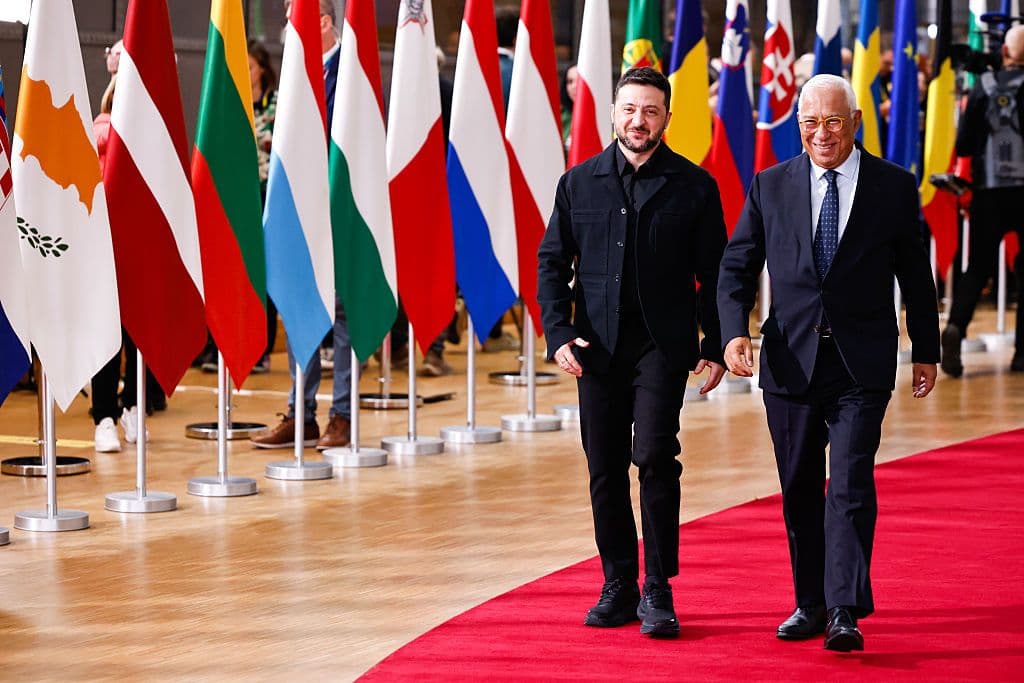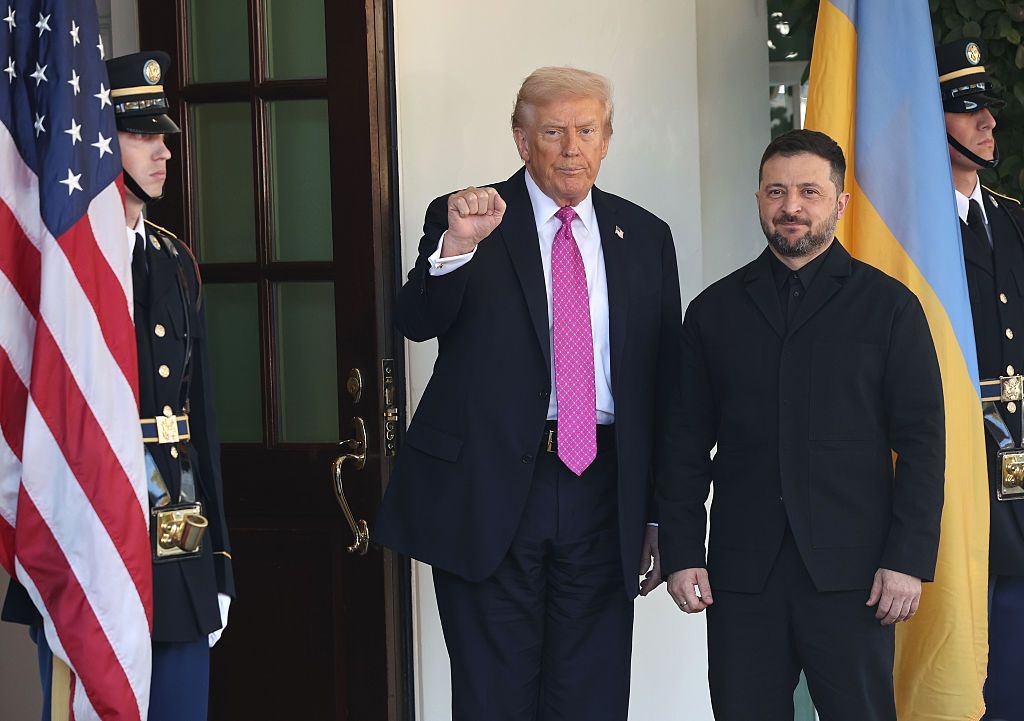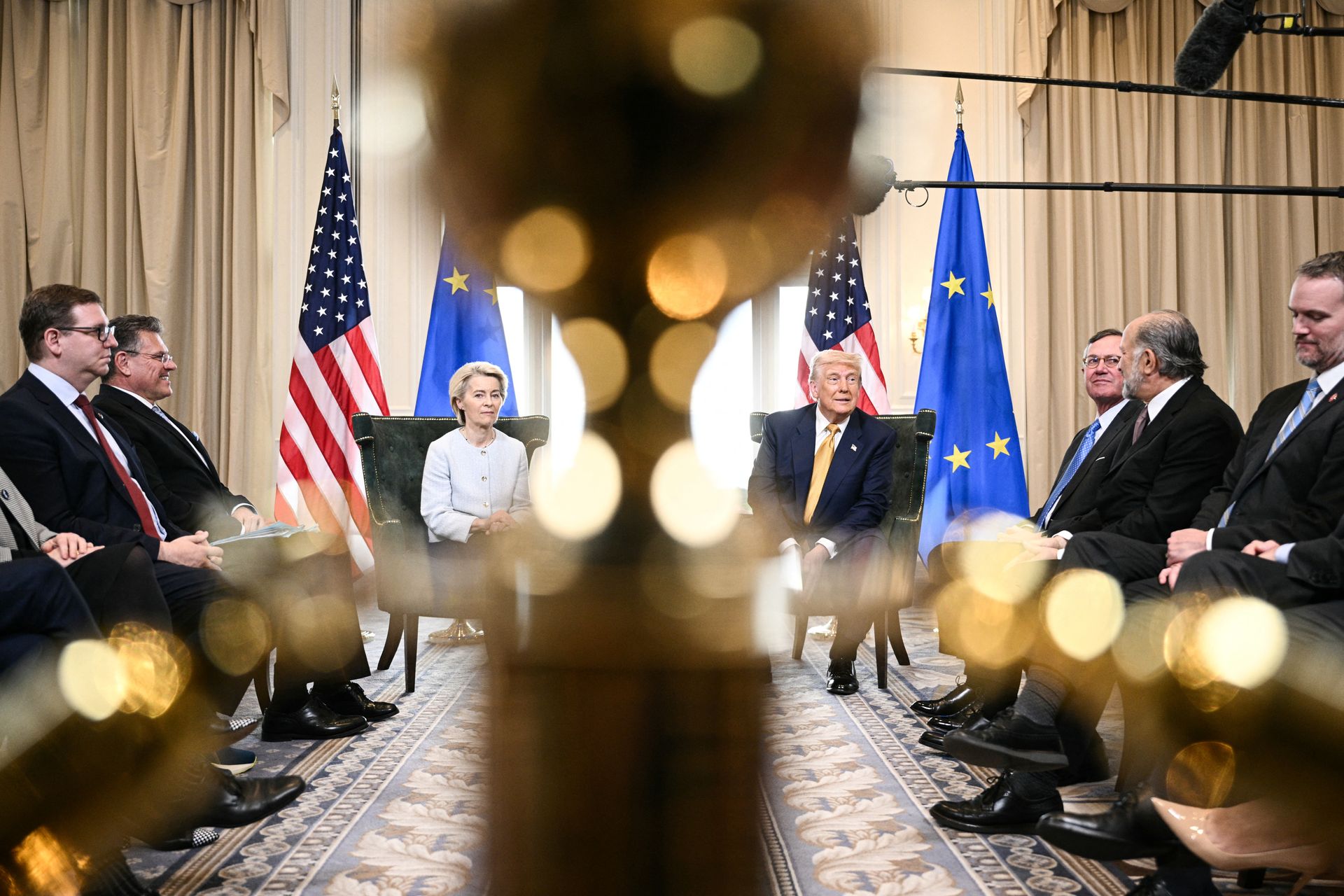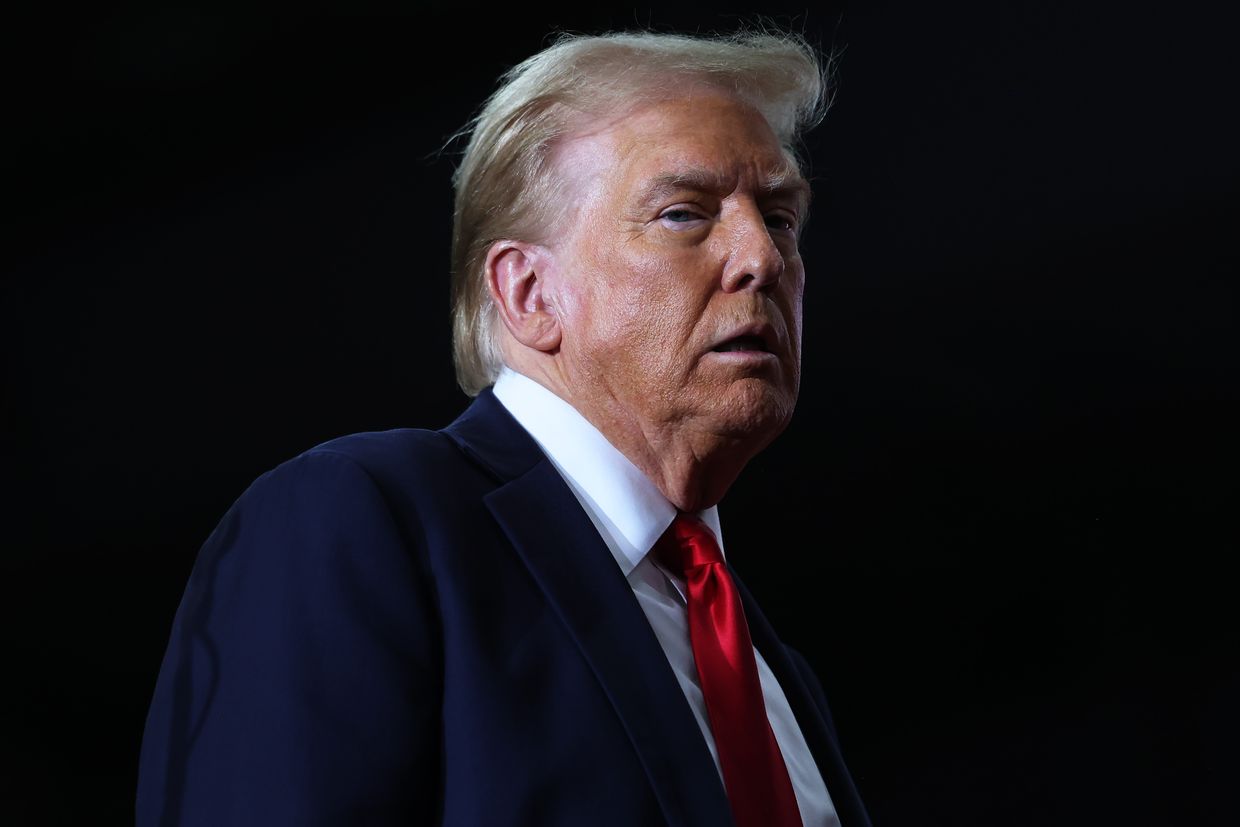Europe must walk the walk on Ukraine

President Volodymyr Zelensky and European Council President Antonio Costa at a European Council meeting in Brussels, Belgium, on Thursday, Oct. 23, 2025. (Simon Wohlfahrt/Bloomberg via Getty Images)

French Hill
French Hill is the chairman of the House Financial Services Committee.
On Sept. 9, Russia violated Polish airspace with multiple drones. Four days later, they menaced Romania with a similar incursion.
Since then, we’ve seen Russian fighter jets in Estonian skies and unidentified drones above airports in Oslo and Copenhagen, all while Moscow is escalating bombings of Ukrainian civilians and infrastructure.
These intrusions should be a wake-up call for Europe and the free world. U.S. President Donald Trump is right to argue that Europe’s continued energy purchases from Russia are “embarrassing.”
“Think of it,” the president told the U.N. General Assembly on Sept. 23, “they’re funding the war against themselves.”
The EU will argue it isn’t solely to blame. After all, China and India each buy 5 billion euros ($5.87 billion) in Russian fossil fuels every month, with Turkey adding over 2 billion euros ($2.35 billion) more. But the EU is still Russia’s fourth-largest customer, with 1.5 billion euros of purchases per month. As a result, Russia takes in around 600 million euros ($700 million) in energy export revenues each day, giving it the hard currency it needs to withstand sanctions and refill its arsenal.
More than three years after Russia’s invasion of Ukraine, the time for Europe’s excuses is over.
The West’s own goals are beyond parody: the G7’s oil price cap scheme — a Potemkin sanctions program hatched by the Biden Administration and EU officials — has pretended to get tough on Russian exports even while prolonging Ukrainians’ suffering.
A 19th sanctions package confirmed by Brussels on Oct. 23 is merely a testament to the failure of the previous 18th. All these half-measures have left Russian President Vladimir Putin as unwilling to negotiate as ever.
And why would he? Even though the Russian economy has slowed, GDP has expanded throughout the war, and unemployment has reached record lows. There is simply not enough pressure to make Putin fear public unrest or the emergence of political alternatives to his rule.
It isn’t enough to support Ukraine’s fight — we must want the country to win. That means decimating Russian export revenues by sanctioning anyone doing business with the country’s energy giants. While it is encouraging that G7 finance ministers are discussing tougher Russian sanctions, new measures will only work if the West is serious about putting an end to Russian oil and gas deliveries.
Fortunately, the president realizes this. On Oct. 22, he imposed sanctions on Russian oil giants Rosneft and Lukoil, a crucial show of leadership that America’s allies should follow. Congress stands ready to go even further.
In July, the House Financial Services Committee passed a critical new sanctions bill, the PEACE Act, by an overwhelming bipartisan vote of 53 to 1. This legislation would cut off any foreign financial institution from the U.S. dollar if it dealt with blacklisted Russian banks or energy companies – including not just Rosneft and Lukoil, but also Gazprom. Anyone thinking of processing a payment for Russian oil — be it in Shanghai, Mumbai, Istanbul, or yes, European cities — would have to think twice.
Crucially, the bill would also transfer billions in frozen Russian sovereign assets to Ukraine, which could then draw on those funds for its defense — at no cost to taxpayers. Bolstering Ukraine’s budget will be as essential as squeezing Russian revenues.
According to the IMF, Kyiv faces a $65 billion financing gap through 2027, and most of its current IMF rescue package has been expended. Another $50 billion in loans from G7 members is nearly exhausted. Ukraine needs resources now, and it can’t be saddled with endless loans if we want to secure its long-term future. The $300 billion in Russian frozen assets, most of them held in Europe, must be part of the solution.
That is why proposals in Europe for a new “reparations loan” to Ukraine risk missing the mark. By using Russian sovereign assets to back additional lending, such plans would create a contingent liability for the EU until Moscow is willing to pay for reconstruction after the war – a scenario that is even further off than Russia halting the conflict. With a reparations loan, Russia could simply sit on its hands to force an EU write-off. Even if Moscow paid up, Ukraine already faces $190 billion of external debt, so it may need to draw on reparations to meet other obligations.

As for those worried that asset seizure could imperil the euro’s role as a reserve currency, they should recall that the euro has held steady as a share of global official reserves, even as Russia’s sovereign holdings have been frozen and the European Central Bank has steadily lowered rates.
Rather than devise a financial Rube Goldberg machine, as they did with their failed oil price cap, G7 members should simply agree to confiscate Russian assets.
Not only would this unlock sorely needed grants for Ukraine, it would incentivize Putin to come to the negotiating table sooner. If Moscow has no reason to fear for its assets, the wait for Russian concessions will continue indefinitely.
President Trump has called Russia a “paper tiger,” noting how Ukraine, “with the support of the European Union, is in a position to fight and win all of Ukraine back in its original form.” Now is the time for the EU to work with the president to end Russia’s ability to wage this war.
It is late — but not too late.











